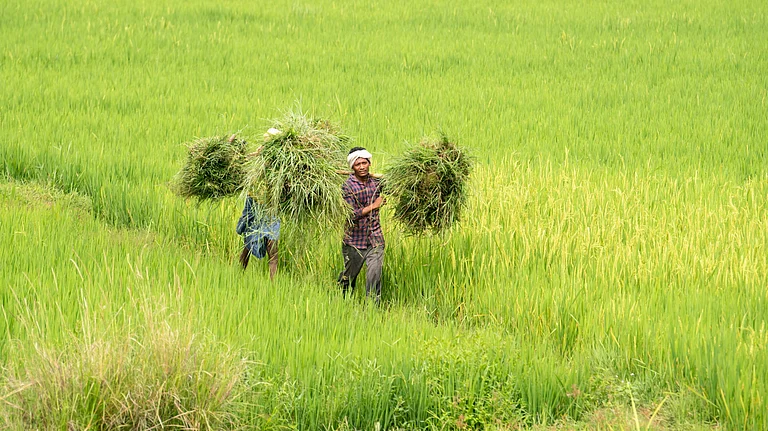Minister of State for Agriculture Ram Nath Thakur on Wednesday stressed the need to promote natural farming to improve soil health.
He was addressing an event organised by Sulabh International, a social service organisation.
The minister asked Sulabh International to work in the areas of natural farming and also the creation of storage infrastructure in rural areas for agricultural crops.
According to a statement by Sulabh, Thakur said the government has given special attention towards the development of the agriculture sector and a huge amount has been allocated to boost storage of all kinds of agricultural produce, including vegetables and fruits.
There is a vast possibility of work in this sector, he said.
Thakur further stressed the need for intensive research to improve soil conditions to ensure high yields and quality production.
With special reference to north Bihar, the minister stressed the need to maximise the uses of availability of ponds in seven districts suitable for Makhana (fox nuts) and fish farming.
During this event, Sulabh gave an opportunity to women farmers from across India who have benefited from Sulabh's food programme, offering them a platform to showcase their produce.
Sulabh International, traditionally known for its pioneering work in sanitation and water, President Kumar Dilip said the decision to focus on food security emerged from its founder late Dr Bindeshwar Pathak's commitment to holistic development - one that addresses not just sanitation but also the underlying factors contributing to poverty and inequality.
"By empowering rural women through agriculture, we aim to create sustainable livelihoods, improve household nutrition, and foster community resilience. This approach aligns with our broader mission of social justice and upliftment of marginalised communities," he added.
On Sulabh Food programme Vice President of Sulabh International, Sutirtha Sahariah said, "Our programme has since empowered over 2,500 rural women by helping them cultivate climate-resilient indigenous crops."
This initiative not only improves food security but also strengthens local economies and promotes environmental sustainability, Sahariah said.































